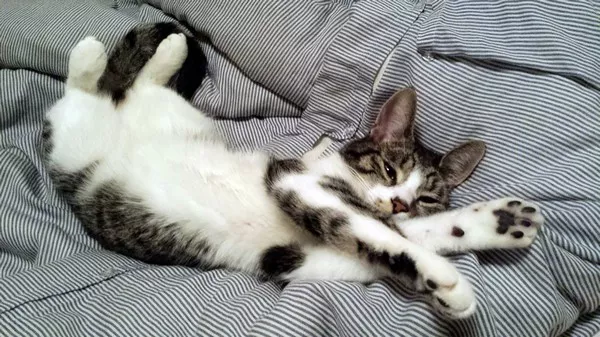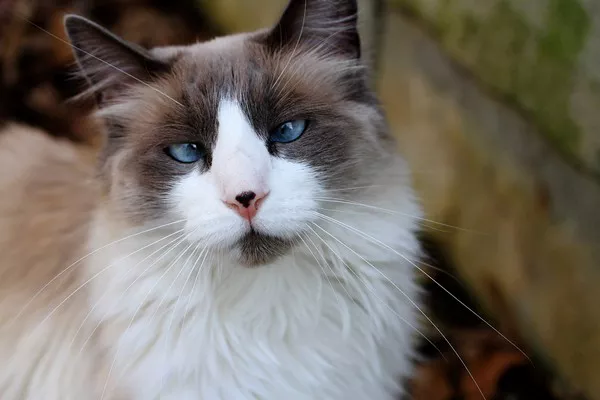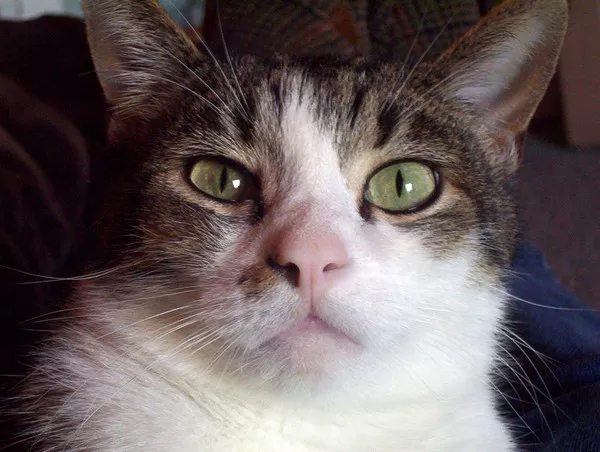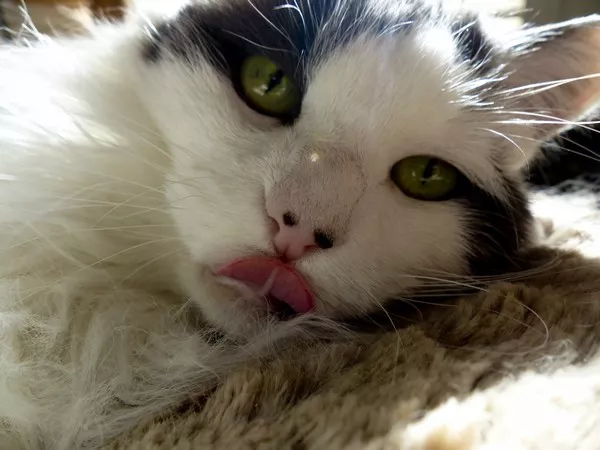As a cat owner, ensuring that your feline companion maintains a healthy weight is essential for its overall health, longevity, and quality of life. Cats, like humans, can experience a range of health issues related to weight, such as obesity, joint problems, diabetes, and a shortened lifespan. Whether your cat is an energetic kitten, a mature adult, or a senior, understanding what constitutes a healthy weight and how to maintain it is a key aspect of responsible pet care.
In this article, we will explore what constitutes a healthy weight for an indoor cat, factors that influence a cat’s weight, and practical tips for ensuring your cat stays within a healthy weight range.
What is a Healthy Weight for Indoor Cats?
A healthy weight for an indoor cat varies depending on several factors, including breed, age, body size, and activity level. Generally, a typical domestic cat should weigh between 8 to 10 pounds, although some breeds naturally weigh more, while others may weigh less. For example, the average weight of a Siamese cat may be lower than that of a Maine Coon, which can weigh 15 pounds or more.
To determine whether your indoor cat is at a healthy weight, consider both the numbers on the scale and how your cat looks and feels. A healthy cat should have a noticeable waistline when viewed from above, and its ribs should be easily felt without a thick layer of fat covering them.
It’s important to understand that “healthy weight” is not a one-size-fits-all concept. Each cat is unique, and their ideal weight will depend on a variety of factors that we will explore in the next section.
The Importance of Maintaining a Healthy Weight
Maintaining a healthy weight is crucial for a cat’s overall health and longevity. Obesity in cats is becoming increasingly common, and it’s linked to numerous health issues, including:
Joint problems: Extra weight places additional strain on joints, increasing the likelihood of arthritis or other musculoskeletal issues, particularly in older cats.
Heart disease: Overweight cats are at a higher risk for heart disease and other cardiovascular issues.
Diabetes: Obesity can increase the risk of diabetes, which is more common in overweight indoor cats, especially neutered males.
Reduced lifespan: Cats that maintain a healthy weight tend to live longer, more active lives than those who are overweight or obese.
By keeping your cat at an optimal weight, you can help prevent these issues and ensure that your furry friend remains healthy, active, and happy for many years to come.
Factors Influencing Weight
1. Age
The ideal weight for a cat changes as it progresses through different life stages. Kittens, adult cats, and senior cats all have different weight management needs.
Kittens: Kittens grow rapidly, so their weight will fluctuate frequently. At around 8 weeks old, a kitten should weigh about 1-2 pounds. By the time a kitten reaches 1 year of age, they should be close to their adult weight, depending on the breed.
Adult Cats: Most adult cats maintain a fairly steady weight from around 1 to 7 years old. The ideal weight will depend on the cat’s breed, size, and activity level. For example, a medium-sized adult cat should weigh around 8-12 pounds, while larger breeds like the Maine Coon can weigh up to 20 pounds or more.
Senior Cats: As cats age, their metabolism may slow down, and they may become less active, which can lead to weight gain. Senior cats (over 7 years old) need regular weight monitoring to ensure they are not gaining excess weight or losing too much weight, which can indicate health problems.
2. Activity Level
A cat’s activity level plays a significant role in its weight. Indoor cats, especially those that are not allowed outside, are often less active than outdoor cats, which can lead to weight gain if their caloric intake is not properly managed. A sedentary indoor cat might require fewer calories than an active one, and adjusting the feeding plan is important for maintaining a healthy weight.
On the other hand, active indoor cats, such as those who enjoy playing and exploring, may require more calories to fuel their energy. It’s essential to provide these cats with opportunities for physical activity to prevent weight gain and keep them healthy.
3. Health Status
Certain health conditions can affect a cat’s weight, making weight management more challenging. Some conditions can lead to weight loss, while others, particularly hormonal imbalances, can cause weight gain.
Hyperthyroidism: This common condition in older cats often results in weight loss despite a good appetite. If a cat’s weight is dropping without a clear cause, it is important to consult a veterinarian for diagnosis and treatment.
Hypothyroidism: This condition, which is less common in cats, can cause weight gain due to a slowed metabolism. If your cat is gaining weight despite eating less, this may be a cause for concern.
Diabetes: Cats with diabetes often experience weight fluctuations. If your cat is gaining weight or not losing weight despite a reduced caloric intake, it may be suffering from this condition.
If your cat has a health condition that could impact its weight, it’s crucial to work closely with your veterinarian to develop a weight management plan that accounts for their unique needs.
How to Determine Your Cat’s Healthy Weight
Body Condition Score (BCS)
The Body Condition Score (BCS) is a system used by veterinarians to assess a cat’s body fat percentage. It’s a more accurate way of determining a cat’s health status than simply weighing the cat. The BCS ranges from 1 to 9, with:
- 1-3 indicating an underweight cat
- 4-5 indicating an ideal weight
- 6-9 indicating an overweight or obese cat
By gently feeling your cat’s ribs and looking at their body shape, you can assess whether they fall into the healthy weight range. Ideally, a healthy cat should have visible waistlines when viewed from above, and its ribs should be palpable with minimal fat covering.
Regular Weigh-Ins
Weighing your cat regularly is essential for tracking any weight changes over time. A sudden increase or decrease in weight can be a sign of an underlying health issue, so monitoring your cat’s weight can help you catch potential problems early.
It’s best to weigh your cat at the same time each week and use the same scale to ensure consistency. If you notice any concerning weight changes, consult your veterinarian promptly.
Consulting a Veterinarian
If you’re unsure about your cat’s ideal weight or suspect that they may have a health issue related to their weight, it’s always a good idea to consult a veterinarian. A vet can provide a comprehensive weight evaluation and offer personalized advice tailored to your cat’s breed, age, and health status.
Maintaining a Healthy Weight
Caloric Intake: The amount of food your cat requires depends on its weight, age, and activity level. Generally, cats need between 20 to 30 calories per pound of body weight each day. For example, a 10-pound cat would need around 200-300 calories daily to maintain its current weight. However, senior cats or those with health problems may require fewer calories, while active or growing kittens may need more.
Portion Control: To ensure your cat is receiving the right amount of food, it’s essential to measure their food portions accurately. Free-feeding, or leaving food out all day, can lead to overeating and weight gain. Instead, divide their daily food intake into multiple meals to prevent overeating.
Balanced Diet: A balanced diet is crucial for maintaining a healthy weight. Ensure your cat’s food includes the right amount of proteins, fats, and carbohydrates to support their health and activity level. Look for high-quality, commercially prepared cat food that meets the nutritional requirements for their life stage, whether it’s kitten, adult, or senior.
Feeding Schedule: Establishing a consistent feeding schedule is an important part of maintaining your cat’s healthy weight. Cats thrive on routine, and regular feeding times help prevent overeating. Avoid giving your cat too many treats, as these can add unnecessary calories to their diet.
Exercise and Play: Indoor cats may not get as much natural exercise as outdoor cats, so it’s important to provide opportunities for physical activity. Engage your cat in regular play sessions using interactive toys, such as laser pointers, feather wands, or puzzle feeders. These activities help keep your cat active, burn calories, and prevent weight gain.
Monitoring Weight: Monitoring your cat’s weight regularly is essential for maintaining a healthy weight. If you notice that your cat has gained or lost weight, adjust their food portions accordingly. Additionally, monitor any changes in behavior or appetite, as these can indicate potential health issues related to weight.
Conclusion
Maintaining a healthy weight is an integral part of cat health. It requires understanding the factors that influence your cat’s weight, such as age, activity level, and health status, and implementing a consistent feeding and exercise routine. Regular monitoring and consulting with your veterinarian will ensure your indoor cat remains at a healthy weight throughout their life. By providing proper nutrition and keeping your cat active, you can help them lead a long, happy, and healthy life.
Related Topics



























